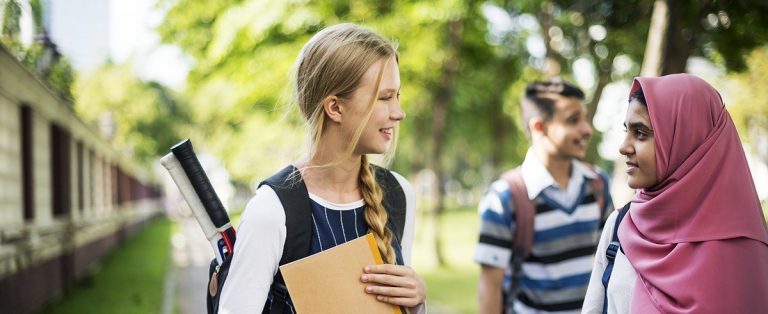
Starting school a few hours later can be massively better for students’ mental and physical health as well as their grades, a new research has found, as reported by The Independent. And they’re not suggesting school to start at 9am instead, but even later all in the name of science.
Here’s what researchers found: The rate of teenage students falling ill more than halved over a two-year period when they started school at 10am, instead of the usual 8.30am, according to the long-term study Frontiers in Human Neuroscience study on 13-16-year-olds at an English state school. Grades got a lot better, too.
“The big issue about school times is health,” said Paul Kelley of the Open University, the lead author of this new paper. “It starts with physical illness, and then there’s mental illness, and last but not least academic performance.”
Starting school at 10am halves student illness and improves academic performance, finds study https://t.co/1uVnSEYrfI pic.twitter.com/YN8xMhIxF3
— Property Perpetuity (@PropertyPetuity) November 27, 2017
And they shouldn’t just stop at 10am either. “Ten isn’t a magic number,” Kelley said. “The time shift gets progressively later, for biological reasons, from the onset of puberty”.
Puberty alters humans’ circadian rhythms which control the daily cycle of our bodies. What happens to teenagers then, is that melatonin, a chemical in the brain that tells our bodies to sleep, is only released a couple of hours later. This explains why teenagers head to bed later than adults.
Circadian rhythm is one thing. Another is needing more sleep compared to their parents as well as different individuals having different variations in their sleep requirements (some are early birds while some are night owls).
These “biological reasons” cause teenagers to have different sleep requirements that adults, who might only need seven hours of sleep. Teenagers, on the other hand, need nine hours for “full brain performance”, neuroscientist Professor Russell Foster of the University of Oxford, said in a TED talk.
This means university students should be allowed to attend classes as late as 11am or even noon for optimal brain function, as suggested by Kelley’s previous work with his collaborators.
“And that’s also going to be relevant for work, because not everyone aged 18 and 19 are in university,” said Kelley.
Is 8:30 a.m. still too early to start school? A 10:00 a.m. school start time improves health and performance of students aged 13-16 https://t.co/SGuXFdynwv
— W. Kyle Hamilton (@kylehamilton) November 27, 2017
This is not the first study to find the benefits of letting students sleep in more for better student attendance, higher test scores, and improved sleep duration. Researchers from the University of Nevada, Reno and UK’s Open University earlier this year found that students’ learning process starts improving after 11am and peaks in the afternoon and evening.
With all these evidence, time to start petitioning your universities to let you sleep in more.
Liked this? Then you’ll love these…
For better grades, sleep at same time every day – study
College students should sleep in more to learn more – study







